Business
Egg price hike caused by feed cost – Poultry farmers
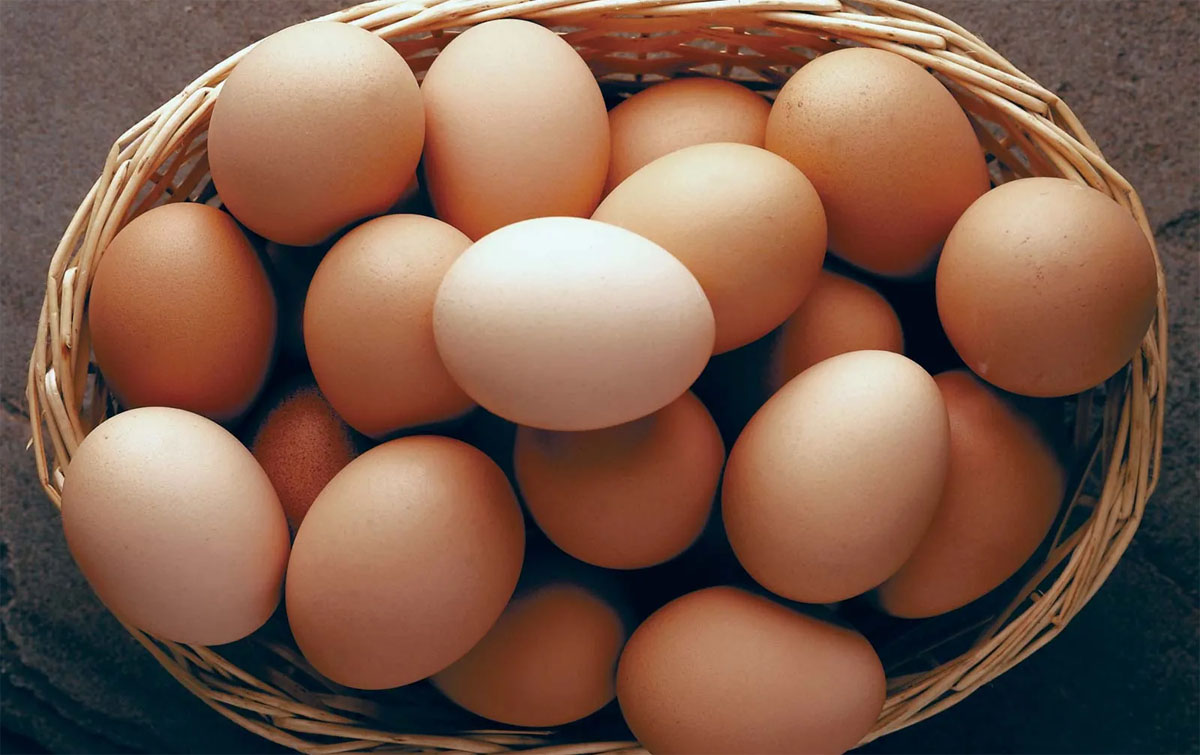
Egg price hike caused by feed cost – Poultry farmers
The Poultry Association of Nigeria (PAN) has blamed the consistent hike in egg prices on low production and high cost of feed.
The PAN Lagos state Chairman, Mr Mojeed Iyiola, and other stakeholders in the sector disclosed this in separate interviews with the News Agency of Nigeria (NAN) on Wednesday in Lagos.
NAN reports that the price of egg has increased tremendously, making the common source of protein in the past out of the reach of many Nigerians.
NAN also reports that a crate of egg sells between N3,800 and N4,000 from the farm gate and above N4,500 in retail shops and markets against N3,200 to N3,500 it was sold in May.
A tonne of maize currently sells for N800,000 as against N400,000 in January.
Iyiola attributed the persistent hike in the price of eggs to scarcity.
“The reason for the current hike in the price of eggs is that eggs are very scarce now.
“Most farmers have sold off their old layers, and to get new stock is very expensive as the price of a day-old chick is becoming unbearable.
“Farmers able to buy day-old chicks are considered to be well-to-do. Also, a majority of our local farmers have shut down their farms due to the high cost of feed.
READ ALSO:
- 25 persons killed in multiple crashes at Enugu Army checkpoint
- Democracy Day: Protest begins in Lagos amid tight security (Photos)
- UK varsity offers flight assistance to expelled Nigerian students
“Presently, a kilogramme of maize costs as high as N850 as against N400 to N500 that was being sold for at the beginning of the year.
“The same thing applies to soya and the groundnut cake, the prices have increased astronomically,” the PAN chairman said.
He, however, said that the increase in the cost of eggs is not commensurate to the rate at which the cost of feed materials are increasing.
“In fact most farmers are running at a loss. That is why the only existing farmers are trying to keep the sector running.
“Even if a crate of egg sells at N5,000, the farmers will only be managing to get by.
“We want to liaise with the food hub at Idi-oro, our farmers are complaining that they can no longer afford to sell at a loss.
“We supply eggs at the farm gate at N3,800 per crate and with the same logistics we still sell at N3,800 at the hub. This means we are running at a loss.
“With all these incurred logistics expenses a crate of eggs should be sold for N4,500 at the food hub,” he said.
According to him, the way things are going if things are not controlled, the sector may collapse entirely.
“It seems consuming eggs have become luxury in our diets.
“We have scheduled a meeting with the government to tackle the situation because there is nothing an individual can do on this issue. We need government intervention,” Iyiola added.
Also speaking, Mr Godwin Egbebe, the National Publicity Secretary PAN, attributed the hike in the cost of raw materials to the reason for the rise in egg prices.
“Early this month, a tonne of maize sold for N720,000 but as of today 12 June, 2024, it sells at N800,000. During the former President Buhari’s administration a tonne of maize was sold at N80,000.
“The increment is over 1,000 per cent, so you can see the reasons for the hike in poultry producers.
“The way forward is that government as a matter of urgency should bring in grains in the short term.
“And in the long term, they should ensure that farmers go back to their farms secured.
“Farmers are not producing enough grains because of insecurity. Palliatives cannot solve the problem, it is like a drop in an ocean. It makes little or no impact,” Egbebe said.
He said that in some supermarkets, eggs are being sold for N5,000 and above.
“Everyday we go to buy feeds, the price changes. As we speak, farmers are actually selling at a loss.
“Most farmers are not breaking even, so they are folding up, it is not funny anymore,” he said.
On her part, Mrs Theresa Muyi, a poultry farmer in Alimosho, decried the situation and the helplessness of local farmers to the persistent hike in feed prices.
“Poultry feed has gone up and we now sell a crate of egg from the farm gate between N3,800 and N4,000. The retailers sell from N4,500 and above.
“The price is still unstable because almost every week there is an increase in feed prices.
“Eggs seem to have become luxury to the common man as a piece of egg now sells at N200 and above,” Muyi said.
Egg price hike caused by feed cost – Poultry farmers
NAN
Business
Nigeria, UAE seal flight rights deal ahead of Emirates return
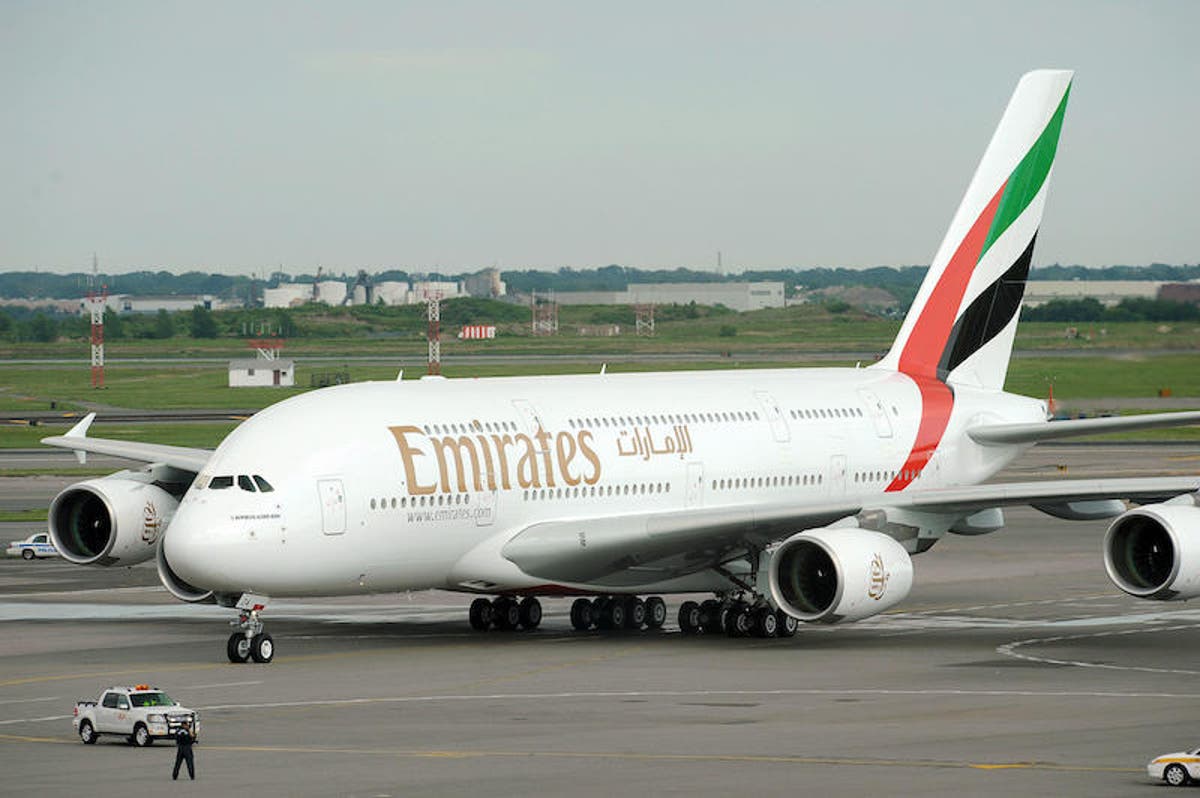
Nigeria, UAE seal flight rights deal ahead of Emirates return
As Emirates prepares to resume its flight operations to Nigeria on October 1, the Nigerian government has successfully concluded negotiations with the United Arab Emirates (UAE) to ensure reciprocal flight rights for Nigerian airlines aiming to launch flights to UAE cities, particularly Dubai.
Despite an existing bilateral air service agreement (BASA) between Nigeria and the UAE, this new agreement on reciprocal rights will streamline the process for Nigerian carriers to operate flights to the Middle Eastern nation.
Before the UAE’s suspension of visa services for Nigerians, Air Peace was running direct flights to Dubai, and other Nigerian airlines were planning to introduce flights to the UAE.
However, before Emirates halted its operations to Nigeria, diplomatic tensions between the two countries had led to a reduction in Emirates’ flight frequencies from 21 to just one by the Nigerian government.
This decision was a reaction to UAE aviation authorities’ refusal to grant Air Peace the right to land at Dubai International Airport, the UAE’s top-tier airport.
READ ALSO:
- Igbo politicians have become mere breadwinners – Obidigbo43 killed as Hurricane Helene ruins southeast US
- Four journalists remanded for alleged false publication against GTB boss
- Reps summon EFCC chair, VeryDarkMan, Bobrisky over bribery allegations
In an effort to prevent a repeat of these issues, Nigeria’s Minister of Aviation and Aerospace Development, Festus Keyamo SAN, led a delegation to the UAE to finalize negotiations ahead of Emirates’ return. The delegation engaged in detailed discussions with UAE officials, focusing on ensuring the smooth reintroduction of Emirates’ services to Nigeria.
The revised BASA agreement, a key part of the negotiations, aims to bolster cooperation between both nations and provide a framework for the evolving relationship in the aviation sector.
According to a statement by the Minister’s Special Assistant on Media and Communications, Tunde Moshood, the talks resulted in a significant breakthrough.
He noted, “Crucially, the negotiations also yielded a significant agreement on reciprocal rights, ensuring that Nigerian airlines will soon have the opportunity to commence direct flight operations to the UAE. This marks a historic development for Nigeria’s aviation industry, expanding international connectivity and offering more options to travelers between the two nations.”
The Minister, expressing his satisfaction, said, “Today’s discussions reaffirm our commitment to fostering a balanced and forward-looking partnership with the UAE. We are pleased to have secured reciprocal operational rights for Nigerian airlines, which will not only deepen our bilateral ties but also strengthen the global competitiveness of Nigeria’s aviation industry. As Emirates returns to Nigeria, we look forward to a thriving and mutually beneficial air service relationship.”
The statement said that the return of Emirates and the new BASA would play a vital role in enhancing tourism, business exchanges, and cultural ties between Nigeria and the UAE, while also contributing to economic growth.
Nigeria, UAE seal flight rights deal ahead of Emirates return
Business
NRC, Lagos govt, NPA, NSIB, others support Nigeria transport summit
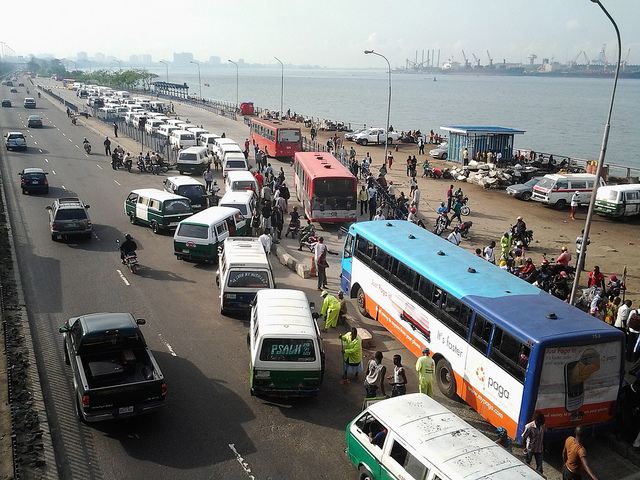
NRC, Lagos govt, NPA, NSIB, others support Nigeria transport summit
The Nigerian Railway Corporation, Nigerian Ports Authority, National Inland Waterways Authority and Lagos State Government are among organisations that have confirmed to be part of the 2024 Nigeria Transport Summit holding in Lagos on October 17.
The event, which brings together critical stakeholders in the transport sector, the organisers, Transportation Correspondents Association of Nigeria (TCAN), said has ‘Intermodal Transport: Prospects and Challenges’ as its theme.
Other firms that have thrown their weight behind the programme are the Nigerian Safety Investigation Bureau (NSIB), the Federal Road Safety Corps, Lagos Metropolitan Area Transport Authority (LAMATA), Lagos Computerised Vehicle Inspection Service (LACVIS), Julius Berger Nigeria Plc, Worldwide Marine Services, Lagos State Traffic Management Authority (LASTMA) and Fidelity Bank Plc, among others.
A statement issued by the TCAN Chairman, Mr ‘Yinka Aderibigbe, and the Local Organising Committee (LOC) Chairman, Mr Rasheed Bisiriyu, said the programme, to be chaired by Lagos State Governor, Babajide Sanwo-Olu,
would be declared open by the Minister of Transportation, Senator Sa’idu Ahmed Alkali.
Former Minister of Transportation, Mr Rotimi Amaechi, would deliver a keynote address at the summit, it added.
TCAN Chairman, Aderibigbe, said, “The focus on intermodal transportation in the maiden edition of the annual summit is deliberate.
“It is aimed at bringing together relevant stakeholders across all subsectors of the transport industry to see the need to form and work in synergy rather than working at cross-purposes, which might pose greater challenge to achieving the dream of giving alternative travel modes in the Nigerian public transportation space.
“Such arrangement will pave the way for greater efficiency through lower costs, operational flexibility and reduced carbon emission in a world committed to cleaner environmental impact that will ultimately benefit all.”
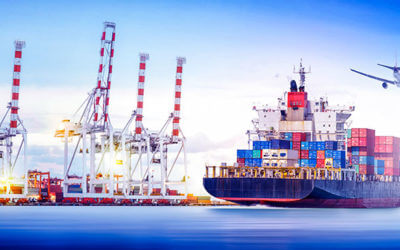
Already, TCAN said a team of speakers had been carefully selected to do justice to the issue under focus.
“A panel of discussants featuring some relevant members of the intelligentsia, heads of prominent agencies/parastatsls and organisations will speak to the sub-themes of the summit around railway, road, inland waterways and aviation sub-sectors as well as safety of operations in the nation’s transportation industry,” the statement said.
A communique will be issued at the end of the event that is expected to come handy for stakeholders in deciding the new direction of the nation’s integrated transportation system.
An industry journal packaged by TCAN would be formally unveiled as one of the highpoints of the event, the committee also stated.
Business
Oil&gas industry operators owe FG $6bn, N66bn – NEITI report

Oil&gas industry operators owe FG $6bn, N66bn – NEITI report
The Nigeria Extractive Industries Transparency Initiative (NEITI) has said outstanding collectible revenues due to the Federal Government from operators in the oil and gas industry have risen to 6.071 billion dollars and N66.4 billion as at June 2024.
NEITI disclosed this on Thursday in Abuja at the public presentation of its 2022 and 2023 Independent Oil and Gas Industry Reports.
The report was prepared by the NEITI Board, National Stakeholders Working Group (NSWG).
The report was unveiled by Mr Ola Olukoyede, Chairman, Economic and Financial Crimes Commission (EFCC), alongside Sen. George Akume, Secretary to the Government of the Federation and Chairman, NSWG, NEITI and other dignitaries.
The breakdown of the report showed that outstanding liabilities were 6.049 billion dollars and N65.9 billion in unpaid royalties and gas flare penalties, due to the Nigerian Upstream Petroleum Regulatory Commission (NUPRC) as collectible revenues by Aug. 31, 2024.
It also provided a detailed analysis of the information and data regarding who owes what in outstanding revenues due to the government.
A further breakdown showed outstanding petroleum profit taxes, company income taxes, withholding taxes, and Value Added Tax (VAT), due to the Federal Inland Revenue Service (FIRS), amounting to 21.926 million dollars and N492.8 million as of June 2024.
On fuel importation, the latest NEITI report disclosed that a total of 23.54 billion litres of Premium Motor Spirit (PMS) were imported into the country in 2022, while 20.28 billion litres were imported in 2023.
READ ALSO:
- Forex: Naira hits N1,675/$ at parallel market
- Tapping phones can’t make you rich – Tutor mocks Kombat CEOs
- Tonto Dikeh speaks on betrayal amid drama involving Bobrisky, EFCC
This represented a reduction of 3.25 billion litres, or a 14 per cent decline, following the removal of the fuel subsidy.
A detailed 10-year trend analysis (2014–2023) in the NEITI report showed that the highest annual PMS importation into the country, 23.54 billion litres, was recorded in 2022, while the lowest, 16.88 billion litres recorded in 2017.
The NEITI report also disclosed that a total of N15.87 trillion was claimed as under-recovery/price differentials between 2006 and 2023, with the highest amount, N4.714 trillion, recorded in 2022.
On crude production, fiscalised crude production in 2022 stood at 490.945 million barrels, compared to 556.130 million barrels produced in 2021, representing an 11 per cent decline.
However, in 2023, NEITI’s independent report revealed total fiscalised production of 537.571 million barrels, and 46.626 million-barrel or 9.5 per cent increase from total production recorded in 2022.
A 10-year trend (2014–2023) of fiscalised crude oil production in Nigeria showed the highest production volume of 798.542 million barrels was recorded in 2014, while the lowest, 490.945 million barrels, was recorded in 2022.
The NEITI report further provided detailed information and data on crude lifting, disclosing that in 2022, total crude lifting was 482.074 million barrels compared to 551.006 million barrels lifted in 2021.
“In 2023, total crude lifting stood at 534.159 million barrels, representing an 11 per cent increase of 58.08 million barrels,” the report stated.
On oil theft and crude losses, a total of 7.68 million barrels of crude were either stolen or lost in 2023, representing a significant drop of 79 per cent (29.02 million barrels) compared to 36.69 million barrels either stolen or lost in 2022.
NEITI’s independent industry report carefully reviewed all aspects of the regulatory framework for the oil and gas industry.
This included the legal framework, fiscal regime, roles of government entities and reforms, as well as laws, Petroleum Industry Act (PIA 2021) and regulations relating to addressing corruption risks in the oil and gas sector.
The event was supported by the European Union and the Rule of Law and Anti-Corruprion (RoLAC) programme being implemented by International Institute for Democracy and Electoral Assistance (IIDEA).
Oil&gas industry operators owe FG $6bn, N66bn – NEITI report
-
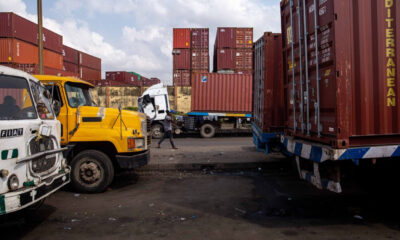
 Business3 days ago
Business3 days agoExports of APM Terminals Apapa rise, 2nd exporters forum beckons
-

 Auto3 days ago
Auto3 days agoInnoson begins delivery of CNG buses to FG, with 25 units
-

 metro2 days ago
metro2 days agoFemi Falana, son Falz hit VDM on Bobrisky prison bribery allegations
-

 News1 day ago
News1 day agoAkwa Ibom govt confirms death of state gov’s wife
-

 News2 days ago
News2 days ago2025 Hajj: Lagos fixes N8.5m as initial deposit
-

 metro2 days ago
metro2 days agoBobrisky was never in prison, says RadioGad, gives evidence
-

 Politics2 days ago
Politics2 days agoAPGA plots to suspend Soludo over alleged anti-party activities
-

 News2 days ago
News2 days agoFG increases NYSC members allowance to N77,000



